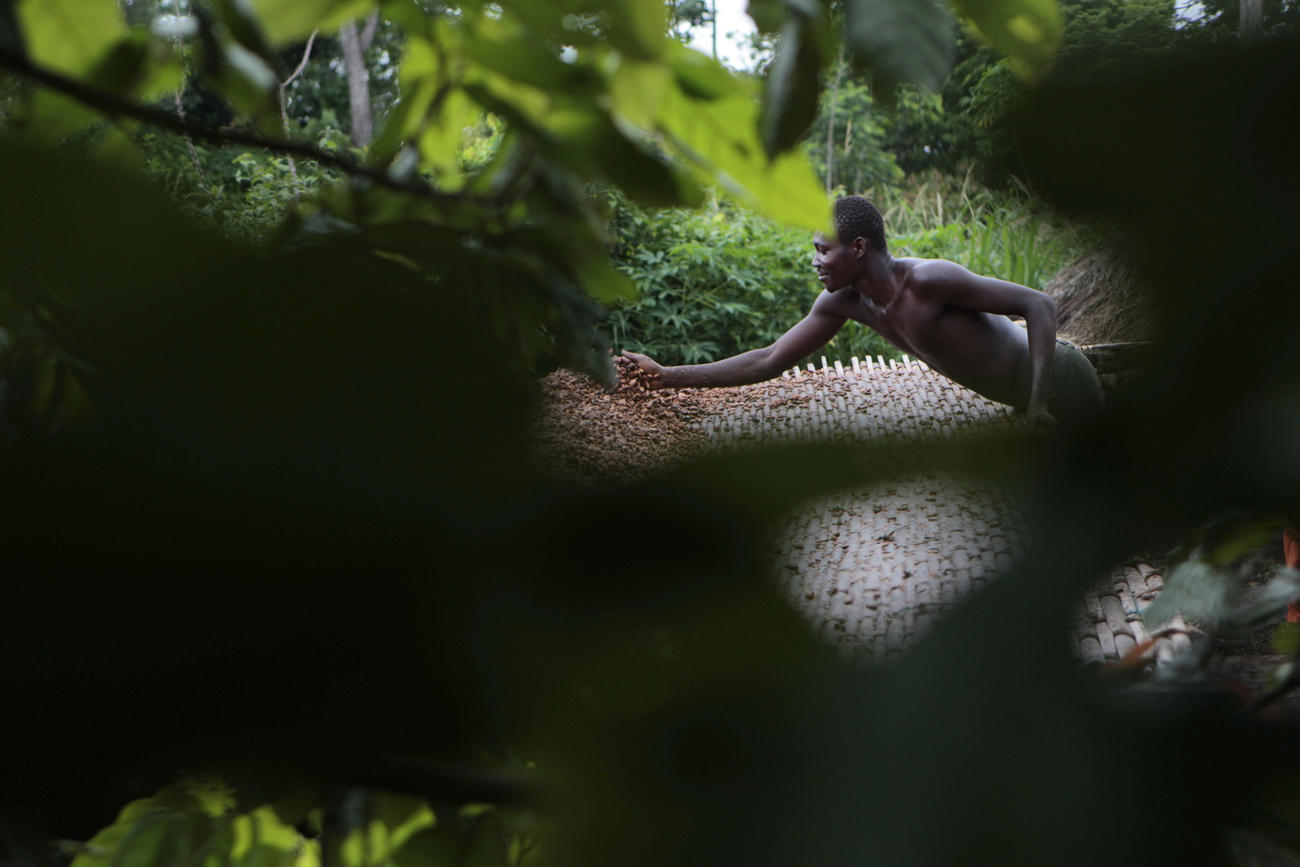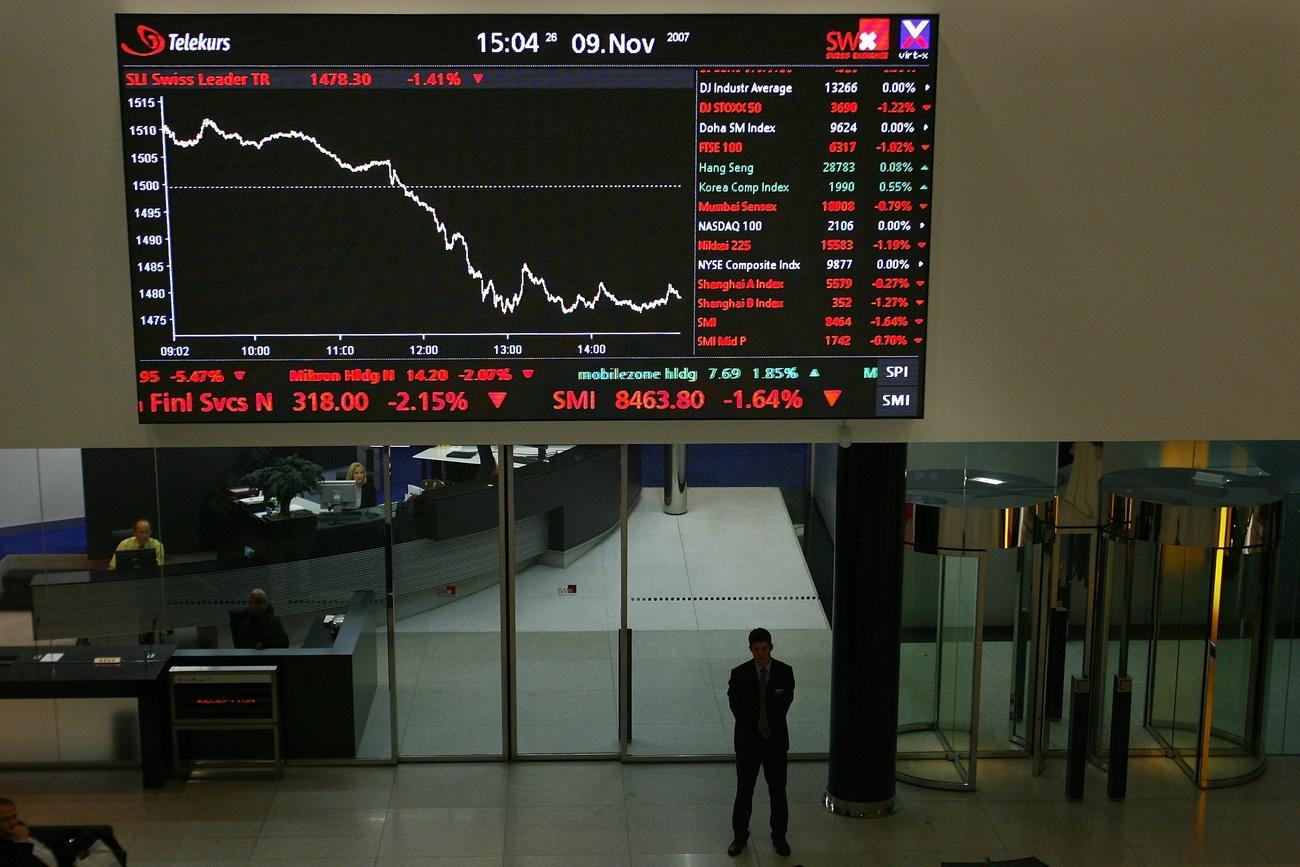How do we keep companies honest on human rights?

Our analysis of what the biggest global companies in Switzerland are up to.
There was a time in the not-too-distant past when a CEO of a major multinational wouldn’t be caught dead saying the words “human rights”. Times have changed. Just this week, more than 30 CEOs signed a call to actionExternal link on human rights, and big companies from NestléExternal link to GlencoreExternal link proudly publish corporate human rights reports.
But how do we ensure these aren’t just empty promises and window dressing? The one (and perhaps only) thing that industry, civil society, and politicians could agree on ahead of the Responsible Business Initiative (RBI) vote in the Swiss House of Representatives last week was that respect for human rights and the environment is important. (By the way, a potential compromise on the initiative is still possible after last week’s vote).
The question has become “how”, with industry associations like Swissholdings arguing that introducing legal liability through the RBI would unleash an “El Dorado of international lawsuitsExternal link”. This may be true, but the reality is that self-policing by multinationals is falling short.
Child labour persists in cocoa production in West AfricaExternal link and other industries in AsiaExternal link, artisanal gold miners continue to suffer from mercury poisoningExternal link, and children are still exposed to hazardous pesticidesExternal link. This is despite some strong corporate commitments and well-intentioned projects.
So, what’s the alternative? Will mandatory due diligence be enough? I want to hear from you.

What else do I have my eye on?
Lots of parliamentary debates and decisions this week including gender quotas, bearer shares, and pesticide bans. They have all inspired raucous debate in Switzerland. After thousands turned out for the nationwide women’s strike last week, the pressure is on parliamentarians to take concrete action to advance gender equality in the country.
Pesticides have been a hugely divisive topic in Switzerland. While the Swiss government has said an initiative to ban pesticides in the country is considered too radicalExternal link, a more narrow focus on restricting highly hazardous pesticides is gaining momentum.
A couple weeks ago, Switzerland went further than its European neighbors when it banned 12 pesticides containing chlorpyrifos and clorpyrifos-methyl. And just this week, the cantonal parliament in Vaud approved limits on glyphosateExternal link – the active ingredient in the herbicide at the center of lawsuits in the United States.
Another story I’m following is how the gold refinery Metalor navigates the troubled territory of artisanal mining. The company has been criticised for refining gold linked to money laundering in South America and just this week they announced that they are cutting ties with small mines. Swiss anti-corruption expert Mark Pieth says this is “skirting the issue” and strips entire communities of their livelihood.
What’s coming up?
My colleague Dominique Soguel has interviewed Pieth about his book on the dark side of the gold industry in Switzerland. Look for an upcoming story on swissinfo.ch.
Is there anything else you think we should be watching or you’d like to hear more about? Let me know.
Catch me on Twitter @JPluessExternal link

In compliance with the JTI standards
More: SWI swissinfo.ch certified by the Journalism Trust Initiative














You can find an overview of ongoing debates with our journalists here . Please join us!
If you want to start a conversation about a topic raised in this article or want to report factual errors, email us at english@swissinfo.ch.